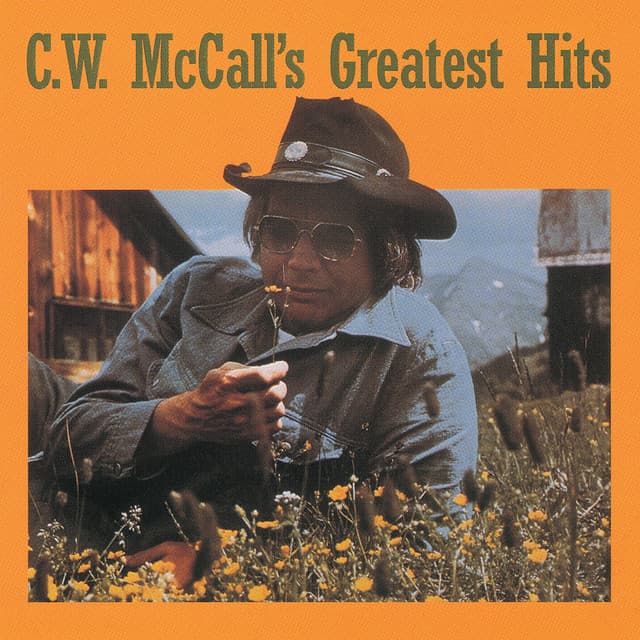
The Open Road’s Rebel Yell: C.W. McCall’s “Convoy”
There are some songs that aren’t just listened to; they’re experienced. They tap into a very specific moment in time, a cultural pulse, and then they pulse right along with it, becoming a vibrant, unforgettable snapshot. C.W. McCall’s “Convoy” is undeniably one of those. This was more than a song; it was an anthem, a spoken-word saga that perfectly captured the spirit of the mid-1970s, a time when the open highway and the camaraderie of truck drivers using their CB radios became an unlikely, yet powerful, symbol of freedom and defiance. Released in November 1975 from his album Black Bear Road, “Convoy” didn’t just climb the charts; it barreled over them like a big rig with its hammer down. It sensationally hit No. 1 on both the Billboard Hot Country Singles & Tracks chart and, remarkably, the Billboard Hot 100 pop chart, holding the top country spot for an impressive six weeks and the pop pinnacle for one. Its reach was truly global, also reaching No. 1 in Canada and New Zealand, and No. 2 in the UK.
The genesis of “Convoy” is as fascinating as its widespread appeal. The man behind C.W. McCall was actually William Dale Fries Jr., an advertising executive from Omaha, Nebraska. Fries, along with composer Chip Davis (who would later gain fame with Mannheim Steamroller), created the C.W. McCall character for a series of successful bread commercials. These ads, featuring a truck driver named C.W. McCall and a waitress named Mavis, proved so popular that they decided to transition the character into the music world. The inspiration for “Convoy” came from a very real place: the burgeoning Citizens Band (CB) radio craze of the 1970s and the simmering resentment among truck drivers over new regulations. The 1973 oil crisis had led to a national 55 mph speed limit, and stricter rules on logbooks were impacting truckers’ livelihoods. CB radios became their lifeline, a way to communicate, warn each other of “smokey bears” (police), and organize informal protests, like driving together in massive convoys to overwhelm law enforcement. Fries himself had a CB radio and drew heavily on the authentic lingo and camaraderie he heard, transforming it into this epic tale.
At its core, “Convoy” is a defiant cry for freedom and a celebration of the working-class hero. It tells the fictional story of a massive convoy of truckers, led by “The Rubber Duck” (McCall’s character), who embark on a cross-country journey, rebelling against unfair regulations and the authorities trying to enforce them. It’s a tale of solidarity, of ordinary men and women (with a “go-go dancer in a ’57 Chevrolet”) finding strength in numbers and asserting their independence. The song’s meaning resonates deeply with anyone who has ever felt constrained by rules or longed for a sense of control over their own destiny. It’s about sticking together, helping each other out (“Pig Pen, this here’s the Rubber Duck, and I’m about to put the hammer down”), and pushing back against what’s perceived as an unjust system. For older listeners, it harkens back to a time when individual liberty and a certain rugged individualism were deeply ingrained in the American psyche, even if it meant a little bit of playful rebellion.
What truly made “Convoy” a cultural touchstone was its unique spoken-word delivery, interspersed with a catchy, driving rhythm. It wasn’t sung in the traditional sense, but narrated, almost like an old-time radio play, drawing listeners directly into the truck cab. The liberal use of authentic CB slang – “10-4,” “breaker one-nine,” “bear in the air,” “chicken coop” – created an immediate sense of immersion, making listeners feel like they were right there, part of the action. This was brilliant; it brought a subculture into the mainstream, making everyone feel a part of this rebellious adventure. The music, driven by a simple but effective country-rock beat, provided the perfect backdrop for the unfolding drama, mimicking the relentless rumble of big trucks on the highway.
“Convoy” was such a massive hit that it spawned a feature film of the same name in 1978, starring Kris Kristofferson as the legendary Rubber Duck, further cementing its place in pop culture. But beyond the commercial success and the movie, the song remains a vibrant piece of Americana. It captures a fleeting but powerful moment in time when the spirit of the open road, the hum of a CB radio, and the defiant camaraderie of truckers became a symbol for many. For those of us who lived through the ’70s, “Convoy” isn’t just a song; it’s a nostalgic trip back to a time when a collective “roger that” over the airwaves meant more than just a message received—it meant you were part of something bigger, a rolling testament to freedom on the interstate.